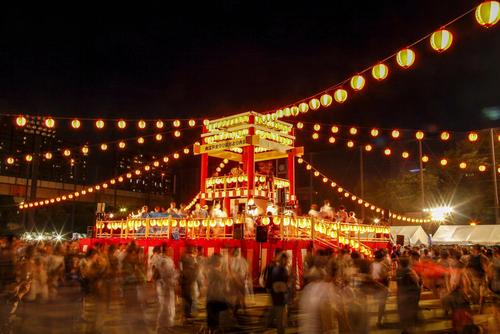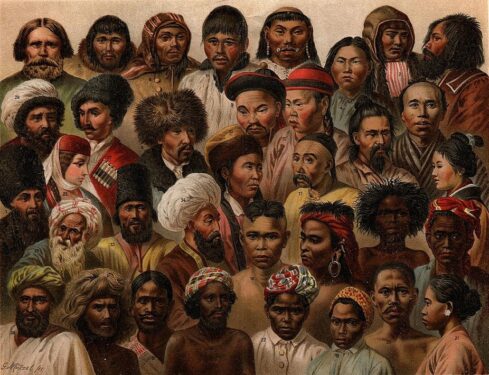RELATIVE to the long list of problems Malaysia is facing, permissibility for Muslims to attend the Bon Odori festival is certainly bottom-tier, if not a non-issue.
But, given the unexpected attention it has garnered, leading to misunderstandings and politicisation of the topic, it’s important to shed some light on the matter.
There should be discussions with relevant parties to solve issues or address concerns before making broad stoke public statements that can be misunderstood and politicised.
Japan’s public relations office referenced an expert in Japanese traditional dance, Bijo Ageha, who pointed to a Buddhist chanting ritual that looks like a dance, dating back to the Kamakura era (1185–1333) as the roots of Bon Odori.
According to Miura and colleagues (researchers from Japanese universities), Bon Odori is “a type of Japanese folk dance performed during the annual Buddhist festival called O-Bon (or simply Bon)”.
In the modern era, Bon Odori is mostly identified as a summertime dance festival, held annually throughout Japan as both entertainment and family reunion while preserving centuries-old Buddhist-rooted spiritual tradition to appease the souls of the deceased.
Therefore, the dance has religious roots, but how much of it is still being practised outside of an annual dance festival and outside of Japan? This is something for the authorities to verify.
It has been reported that the Malaysian Islamic Development Department (JAKIM) conducted a “study” which found that the festival does have religious elements, which may not be inaccurate.
Subject to their findings, perhaps it is more apt to suggest a non-advisable stance for Muslims not to participate in specific spiritual/religious rituals associated with the dance and the chants, rather than the entire event itself.
Determining permissibility
If the potential harm to an individual or society is more than any potential benefits, if any, then that provides the basis to label it as not permissible, or haram, such as consuming alcohol, smoking cigarette, engaging in prostitution, gambling etc.
As introduced and thoroughly outlined by the eminent Islamic scholar Dr Yusuf al-Qaradhawi in his book “The lawful and the prohibited in Islam”, “…if the harm outweighs its benefit, it is haram, while if its benefit outweighs its harm, it is halal” and al-Qaradhawi pointed to the following Quranic verse:
“They ask you about drinking and gambling. Say, “There is great harm in both, though there is some benefit also for the people. But the harm of the sin thereof is far greater than their benefit” (Qur’an 2:219)
On this note, it is important to understand that JAKIM never said it is not permissible (Haram) to participate. The religious body merely conducted a study (as claimed), and the result is used as a basis by the Minister in the Prime Minister’s Department (Religious Affairs) to advise against it.
This indicates that the authority’s “study” on the event found a relatively lower level of potential harm to participants, not enough to deem it not permissible.
The presence of any risk, be it physiological, psychological, or even spiritual, may call for religious authorities to provide their views and stance on the matter, as the Muslim population may rely on their guidance pertaining to the permissibility of attending the festival.
As far as this goes, and aside from the questionable timing and the resulting diversion of the public from more critical issues the nation is facing, the statement from said minister may not be totally uncalled for.
However, the broad statement could’ve been refined to put more focus or confine the “non-advisable to participate” stance to the dance/chants itself instead of the entire festival.
For a multi-religious and multi-racial nation, it’s advisable that any statements on such issues are provided with full context, deeper explanation and with sensitivity to non-Muslims and other nations.
Otherwise, it would risk the teachings of Islam being misrepresented and the religious authorities being labelled as ignorant.
Also, as far as “not-advisable” goes, why stop at Bon Odori? There could be many other places and events which may confer similar “harms” or “risks”.
In fact, spiritual/religious elements also exist in Chinese New Year, Deepavali, Christmas etc. and yet these events are recognised as national public holidays.
For the benefit of the non-Muslims and to avoid misunderstanding of Islam, it is important to know some of the core Islamic teachings relating to the issue:
Relationship between humans of different races
“O mankind, We have created you male and female, and appointed you races and tribes, so that you may know one another. Surely the noblest among you in the sight of God is the most God-fearing of you” (Qur’an 49:13)
The Prophet Muhammad (peace be upon him) was reported in an authentic Hadith (narration) to have said “There is no superiority of an Arab over a non-Arab, or of a non-Arab over an Arab, and no superiority of a white person over a black person or of a black person over a white person, except on the basis of personal piety and righteousness.”
Relationship between Muslims and non-Muslim
“Allah does not forbid you from dealing kindly and fairly with those who have neither fought nor driven you out of your homes. Surely Allah loves those who are fair. Allah only forbids you from befriending those who have fought you for ˹your˺ faith, driven you out of your homes, or supported ˹others˺ in doing so. And whoever takes them as friends, then it is they who are the ˹true˺ wrongdoers” (Qur’an 60:8-9)
Relationship with neighbours
There are many authentic narrations (hadiths) concerning relations with neighbours, and it is important to note that these do not concern only Muslim neighbours.
For example, from Ṣaḥīḥ al-Bukhārī 6014, Ṣaḥīḥ Muslim 2624, A’isha (May God be pleased with her) reported: “I heard the words of the Messenger of Allah (peace and blessings of Allah be upon him): “Jibrail (archangel Gabriel) strongly advised me (to treat) my neighbours with kindness, so I thought that he will even persuade me to give them (the right to) an inheritance”
In the situation with Bon Odori, perhaps it can be seen as a neighbour’s invitation. Therefore, it is important to clearly understand that visiting the festival in itself is not tantamount to the recognition of a festival or rituals that are not related to Islam. This is only a manifestation of respect and good neighbourly conduct, in accordance with the Prophet’s behaviours and actions. – June 10, 2022
Dr Rais Hussin and Ameen Kamal are part of the research team at EMIR Research, an independent think tank focused on strategic policy recommendations based on rigorous research.
The views expressed are solely of the author and do not necessarily reflect those of Focus Malaysia.










